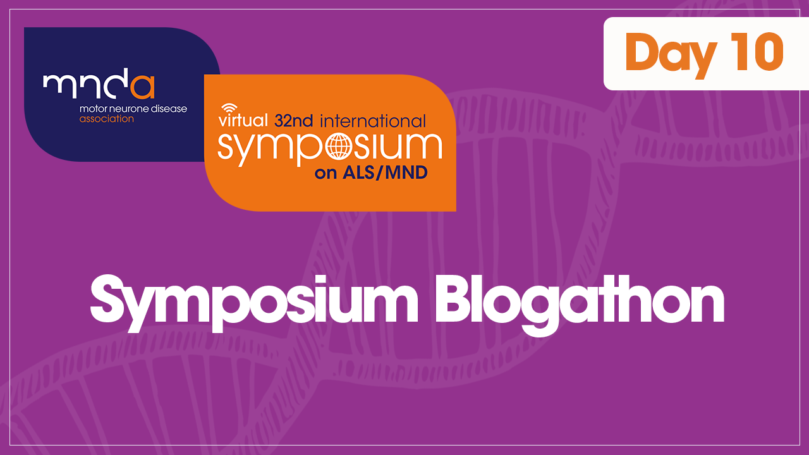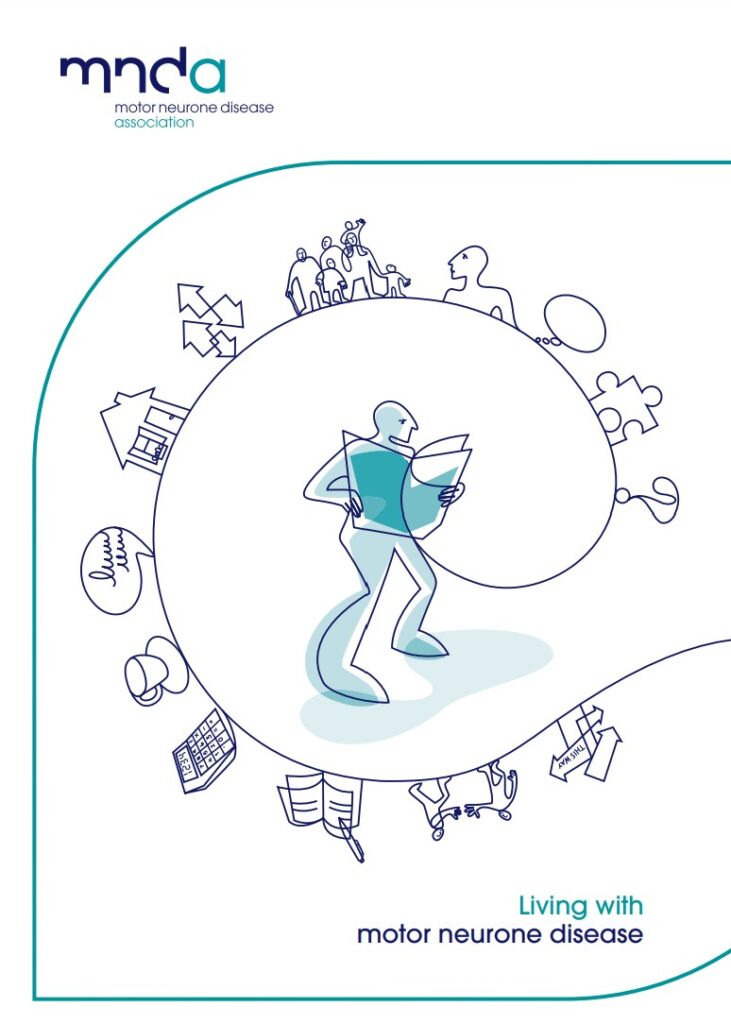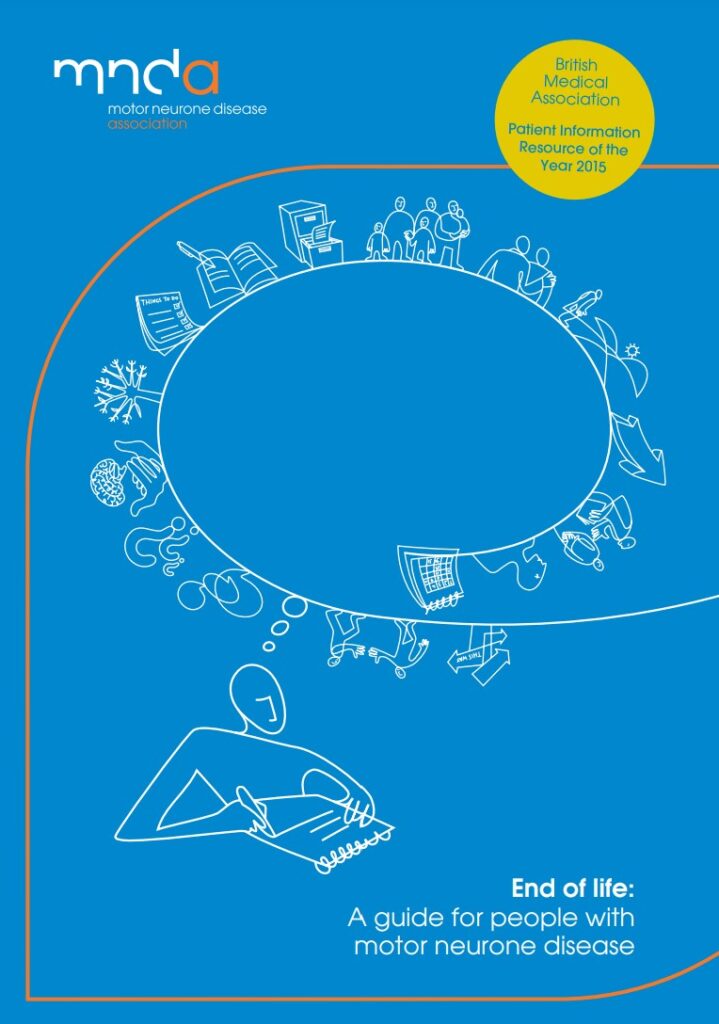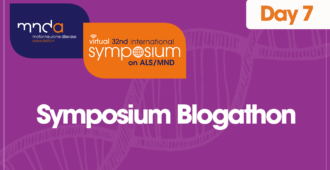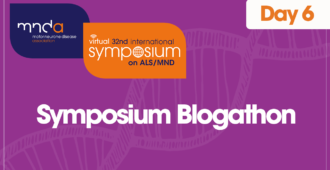This is blog number 10 in our ‘Symposium Blogathon’ – counting down to the 32nd International Symposium on ALS/MND. Numbers in brackets correspond to the code in the abstract book. Click on the number to be redirected to the full abstract – available 17 November.
This blog article talks openly about death and end of life decisions.
Quality of life is defined as the degree to which an individual is healthy, comfortable, and able to participate in or enjoy life events. The medical definition is the extent to which a patient can enjoy normal life activities, which is an important consideration in medical care as some treatments aimed at prolonging longevity can seriously impair quality of life. The aim of hospice and palliative care is to give the best possible quality of life with a life-shortening illness. For maximum benefit to people with MND, this type of care is recommended from the point of diagnosis onwards.
Palliative care refers to specialised care services that focus on quality of life and symptom control when a person has an illness that can’t be cured. This includes practical help, medication to ease symptoms and support for the individual and their family. Palliative care isn’t just for end of life. It may be given earlier in a person’s illness in conjunction with other therapies treating the condition.
Palliative care is of utmost importance in MND and focusing on managing symptoms and improving quality of life of people living with the disease is a priority of healthcare professionals. Because of the nature of the disease, it is important for those affected by MND to know about the symptoms they should expect as the disease progresses, and how best to manage them. Research is always ongoing to find out how best to manage symptoms and when to utilise life-sustaining measures.
RELATED TOPIC
Guide
Living with motor neurone disease
Improving quality of life
Despite declining physical function, people with MND report relative preservation of overall individual quality of life. This is attributed to a reprioritisation by the individual of what constitutes quality of life. A similar adaptation could also affect personal perceptions of health (HRQoL). Researchers from the USA have examined reprioritisation of factors that determine HRQoL and have confirmed the idea that health perception is more representative of psychological well-being rather than physical function as the disease progresses, in parallel with quality of life. Emphasis on psychological health would be an effective strategy to maximise personal perception of health as MND advances (COG-18).
Saliva problems are common in people living with MND and represent a significant burden with little evidence to guide management. Researchers from Sheffield University carried out a multicentre evaluation of saliva management in people with MND, called the ProSec3 study, which was funded by the MND Association. The study had four objectives: to describe how common saliva problems are in the UK MND population; to describe how saliva problems are currently treated; to identify the effectiveness of each treatment for saliva problems; to identify which, and how often, drugs for saliva problems cause side effects and lead to discontinuation. The group identified that the drugs commonly being prescribed to alleviate secretion problems are often not effective and can have unpleasant side effects. They discuss this, and the need to investigate better methods of managing saliva problems, in poster CMS-42.
In relation to the above work, researchers from Sheffield also looked at developing a tool to estimate the severity of saliva problems in people with MND, which would help to assess the performance of potential therapies in future clinical trials. They sought to further develop and validate the clinical saliva score for MND (CSS-MND). The amended CSS-MND is a ten-item patient reported outcome measure which could be used in much-needed future trials addressing the poor management of saliva problems in this patient group (CMS-51).
Researchers from universities throughout the UK have been assessing how MND care has been affected by the global pandemic from the perspectives of people living with the disease and healthcare professionals, at both an individual and care centre level. It was found that treatment and interventions were delayed or disrupted, and people living with MND had less access to multidisciplinary services such as physiotherapy and speech and language therapy. Although much care was given via telephone and video consultations, healthcare professionals raised concerns about not having face-to-face contact. In their poster (CMS-44) the team will discuss their recommendations for improving continuity of care both in or out of a pandemic.
Palliative care and end of life
Thinking about end of life is rarely an easy task. Some of the decisions that need to be made are very difficult and everyone’s experience will be different. People may have troubling thoughts such as ‘what will happen?’, ‘will it hurt?’ and ‘will I lose control?’. It is normal to expect heightened emotions when facing end of life decisions, but it has been reported that people feel relieved, and much calmer having made their plans and knowing what is likely and less likely to happen. Every individual’s needs and preferences will be personal to them but can be influenced by those around them, leaving them feeling angry, guilty, sad and even relieved. These are all normal and expected reactions to challenging circumstances. With support from health and social care professionals, and family and friends, difficult feelings usually become more manageable over time.
RELATED TOPIC
Guide
End of life: A guide for people with motor neurone disease

Plenary speaker Dr Heike Gudat is a physician who specialises in palliative care. Based on discussions with people with MND at the ALS Clinic Basel, Dr Gudat, in her talk ‘Medical assistance in dying’ (C12), explores reasons why people living with MND might choose assisted dying.
The MND Association’s position on assisted dying is neutral, you can read our policy statement here.
Dr Denise Harris, from Manchester Metropolitan University, presents a poster that explores the meaning of existence for the person with MND and their carers. This is based on her experiences of caring professionally for people with MND and caring for her mother, who also had the disease. Using two methodologies, and three key areas of study, she concludes that although MND care is complex, this complexity can be reduced if the range of professionals who provide the care interpret the needs of the people at end of life to provide not only multi-professional but inter-professional person-centred care (CMS-29).
For many people given a diagnosis of MND, a major preoccupation and cause of anxiety is about end of life. There is little research describing the period at or near the time of death (the perimortem period) and information about this might help ease this anxiety. Researchers in Sweden have collected information from patients at an MND clinic until their death and their results will be presented in poster CMS-50.
Stay informed
If you have come across this blog through the Symposium website, or a general search please subscribe (see top right hand corner of page) and you’ll be notified every time we upload a new article.
You can follow our research account on Twitter. We tweet about up to the minute research and will be tweeting throughout the Symposium – #alsmndsymp #drivingmndresearch
Take a look at the schedule of blogs for November as we continue counting down to the 32nd International Symposium on ALS/MND with our ‘Symposium Blogathon’.
To listen to talks live, take part in the Q&As and visit the live poster sessions, register for the International Symposium now.

